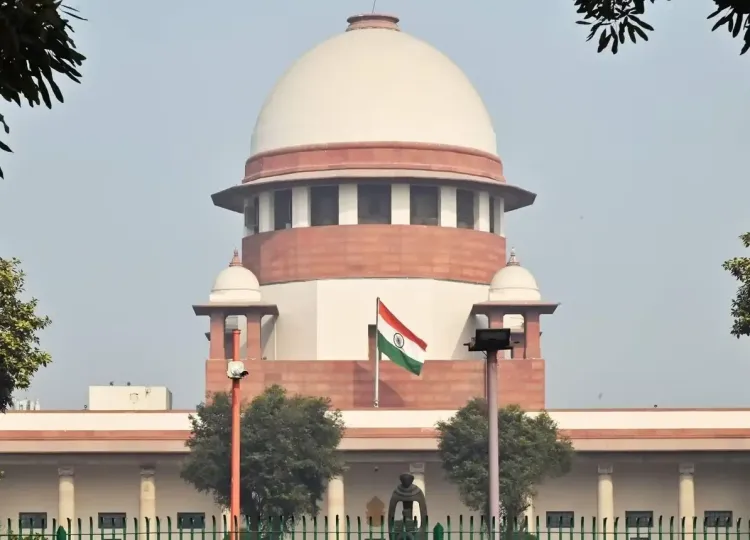Supreme Court: Trial Courts Retain Discretion in Bail Order Formats

New Delhi, Dec 18 (NationPress) The Supreme Court has clarified that while constitutional courts have the authority to establish principles regarding the issuance of bail or anticipatory bail, they are not permitted to dictate the format in which a bail order should be issued by trial courts.
"The constitutional courts can set forth the principles regarding bail or anticipatory bail. Nevertheless, they cannot interfere with the discretion of trial courts by prescribing the format for a bail order when adjudicating bail applications," stated a bench led by Justice Abhay S. Oka while addressing a plea from a District and Sessions Judge of the Rajasthan Judicial Service (RJS) seeking to annul negative observations made against him.
After the judicial officer denied a bail application, the accused approached the Rajasthan High Court. When bail was granted, negative remarks were directed at the appellant for failing to adhere to directives from the Rajasthan High Court in the Jugal Kishore vs State of Rajasthan case.
The appellant neglected to include the prior record of the accused in the required tabular format as stipulated in paragraph 9 of the Jugal Kishore ruling.
Due to non-compliance with the directives from the Jugal Kishore case, a single-judge bench of the Rajasthan High Court remarked that the appellant's actions could be seen as both indiscipline and potentially contempt.
In response, the Supreme Court remarked: "We are unable to comprehend how the appellant's actions constitute indiscipline or contempt for not adhering to the recommendations in paragraph 9 (of the Jugal Kishore decision)."
The court indicated that calling for an explanation from a judicial officer through a judicial order was "inappropriate," asserting that such explanations should only be sought on the administrative side.
Additionally, the apex court criticized the Rajasthan High Court for wasting valuable judicial time by mandating the judicial officer to submit a count of the bail applications he processed, along with a report on the adherence to the Jugal Kishore directives.
"The actions taken by the High Court regarding a bail petition in a situation where the appellant as a Session Judge denied bail were entirely unnecessary. The High Court's actions, starting from the directives in the Jugal Kishore case and the orders from April 4, 2023, April 25, 2023, and the contested order finding fault with the appellant were not only unjustified but also illegal," the Supreme Court ruled.
It further noted that similar directives issued in the Jugal Kishore case had previously been overturned by the Supreme Court.
The court concluded that the directives from the Rajasthan High Court should not be regarded as binding and could only be viewed as suggestions. Thus, failure to comply with these directives by a judicial officer cannot be deemed an act of indiscipline or contempt, the apex court affirmed.
In its conclusion, the Supreme Court mandated the removal of "all negative remarks/observations" against the appellant and clarified that such remarks cannot serve as grounds for administrative action against the appellant.
"The High Court should have exercised restraint. It cannot jeopardize the career of a judicial officer through such orders, as he cannot adequately defend himself when such orders are made on the judicial side," the court stated.









